In 2014, these countries failed to meet the minimum standards for the elimination of human trafficking as set forth in the US Trafficking Victims Protection Act, Fortify Rights' executive director Matthew Smith said today at a hearing before the US House of Representatives Subcommittee on Africa, Global Health, Global Human Rights, and International Organisations.
A 15-page written testimony, submitted to the subcommittee and published by Fortify Rights today, is based on hundreds of interviews conducted by Fortify Rights with witnesses and survivors of abuse and more than a dozen human traffickers.
It focuses on abuses against Rohingya Muslims, who are fleeing state-sponsored violence in Myanmar, and ethnic Kachin and Shan individuals who have been displaced by ongoing armed conflict along the Myanmar-China border.
Fortify Rights said that more than 650,000 Rohingya are displaced in Myanmar and Bangladesh and are at particular risk of being trafficked.
''Myanmar is responsible for setting this regional crisis in motion through its ongoing campaign of persecution against the Rohingya,'' said Matthew Smith.
''Rohingya are being driven into the hands of human traffickers.''
Many Rohingya have fled to neighboring Bangladesh to escape violence, ongoing deprivations in aid, and policies of discrimination in Myanmar.
However, the government of Bangladesh has deliberately denied Rohingya protection and aid, leading tens of thousands to take dangerous and risky boat journeys to Thailand or Malaysia, Fortify Rights said.
Trafficking brokers in Myanmar and Bangladesh often deceive Rohingya into believing that they will be transported to Malaysia, a major destination country for Rohingya.
Instead, they are ferried to international waters and crammed into modern-day slave ships bound for Thailand.
Fortify Rights has documented killings, rape, torture, and deprivations of food and water during the journey at sea.
Once in Thai territory, ''passengers'' are transported to trafficking camps located in remote jungles and on islands where they face torture and other abuses until they can buy their freedom or are sold to the highest bidder.
Rohingya women and girls have been sold into forced marriages and a potential lifetime of sexual and domestic servitude. Men have been sold to fishing boat captains as slave labor.
Although Thailand's unelected military leader General Prayuth Chan-ocha acknowledged that Thai government officials are involved in trafficking, Thailand prosecuted fewer human traffickers in 2014 than it did in 2013.
Moreover, Thai authorities reported a mere five cases of human trafficking involving Rohingya in 2014.
Fortify Rights says government officials in Myanmar and Thailand have been complicit in a deadly trade in Rohingya asylum seekers that has generated up to $250 million dollars for transnational criminal syndicates since 2012.
''Human trafficking is big business. Traffickers are getting rich while asylum seekers pay with their lives,'' Matthew Smith said.
''If the US government wants to see an end to this slave trade, it should hold these countries accountable to the established standards.''
In Malaysia, Rohingya have been held in ''hostage houses'' - private residences where people are detained by human traffickers and their intermediaries.
Rohingya, who avoid or escape hostage houses, lack adequate protections in Malaysia. Malaysian police routinely extort money from refugees and asylum seekers, including survivors of trafficking.
Authorities throughout Southeast Asia treat Rohingya asylum seekers as ''illegal migrants'' and subject them to arrest, detention, and informal deportation, putting them at further risk of trafficking.
Fortify Rights' testimony also focused on forced labor and other forms of trafficking of Kachin and Shan civilians displaced along the Myanmar-China border.
More than 170,000 civilians have been displaced by war between the Myanmar Army and various ethnic armies in northern Myanmar since June 2011.
Young women and girls displaced by the war and with few livelihood opportunities are at risk of being abducted or deceived into migrating to China, said Fortify Rights. In China, they have been forced into marriages.
The Myanmar Army has also used forced labor and human shields on the frontlines of the war in Kachin and Shan states - a form of abuse that constitutes human trafficking.
The annual TIP Report is a diplomatic tool of the US government to hold foreign governments accountable for their record on human trafficking.
Countries are ranked on a three-tier system based on the extent to which they meet minimum standards for eliminating trafficking.
Tier-three countries are subject to sanctions at the discretion of the President of the United States. This year's report is due to be released in June.
Thailand and Malaysia currently hold a tier-three TIP report ranking. Bangladesh is tier-two, and Myanmar is tier-two ''watch list.''
''We've seen how TIP rankings get the attention of senior officials and can lead to positive changes in policies and practices,'' Matthew Smith said.
''These patterns of trafficking have gone on for years. Halting them will require significant resources and vigilant, sustained action to ensure justice and protection for survivors.''

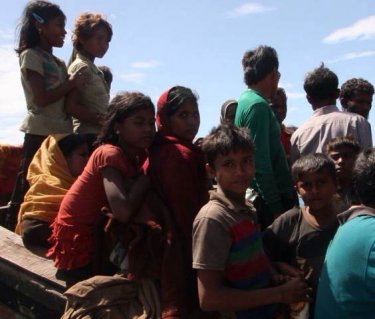
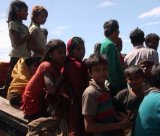
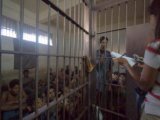

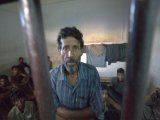
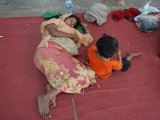

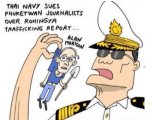
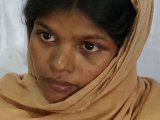
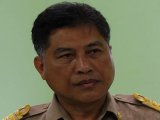



Dear Editor
Well done for continuing to shine a light on this dark issue.
Hopefully some of the leaders at the ASEAN summit in Malaysia this weekend will discuss this issue seriously. The policy of non-interference in each other's affairs has proved disastrous so far.
Ian Yarwood
Solicitor - Perth, Western Australia
Posted by Ian Yarwood on April 23, 2015 08:58